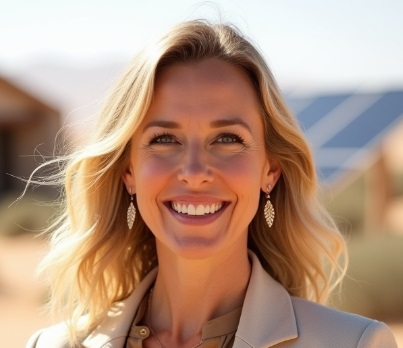
Hayat Program: Transforming Lives Through Organ Donation in the UAE
Reading time: 8 minutes
Ever wondered how a single decision could save up to eight lives? In the UAE, the Hayat Program is revolutionizing healthcare by making organ donation accessible, culturally sensitive, and remarkably effective. Let’s explore how this groundbreaking initiative is creating hope where there once was none.
Table of Contents
- Understanding the Hayat Program
- How to Register: Your Step-by-Step Guide
- Real Impact: Numbers That Tell Stories
- Navigating Cultural and Religious Perspectives
- Success Stories: Lives Transformed
- Overcoming Common Barriers
- Your Donation Journey: What to Expect
- Frequently Asked Questions
Understanding the Hayat Program: More Than Just Medical Innovation
The Hayat Program isn’t just another healthcare initiative—it’s a cultural bridge that connects modern medical science with traditional values. Launched by the UAE Ministry of Health and Prevention, this comprehensive organ donation framework addresses the critical shortage of organ donors while respecting the diverse cultural landscape of the Emirates.
Here’s the straight talk: Every 10 minutes, someone is added to an organ transplant waiting list. In the UAE, over 2,000 patients currently await life-saving transplants, with kidney patients comprising nearly 80% of this waiting list.
Key Program Components
- National Organ Registry: Centralized database ensuring efficient matching
- Cultural Liaison Services: Specialized support for diverse communities
- Medical Excellence Centers: State-of-the-art facilities across all emirates
- Community Outreach: Education programs targeting misconceptions
Quick Scenario: Imagine you’re a 35-year-old professional living in Dubai. Your colleague mentions they’re on dialysis three times a week, waiting for a kidney transplant. Through Hayat, your registration could potentially save their life—and seven others. This isn’t hypothetical; it’s happening every month across the UAE.
How to Register: Your Step-by-Step Guide
Registering for organ donation through Hayat is surprisingly straightforward, but the impact is profound. Let’s break down the process that transforms good intentions into life-saving action.
Digital Registration Process
- Access the Platform: Visit the official Hayat Program website or use the mobile app
- Verify Identity: Use UAE Pass or Emirates ID for secure authentication
- Complete Medical Questionnaire: Answer basic health and lifestyle questions
- Select Donation Preferences: Choose specific organs or opt for comprehensive donation
- Emergency Contact Details: Provide family contact information
- Digital Confirmation: Receive immediate confirmation and donor card
Traditional Registration Options
Prefer face-to-face interaction? Visit any designated healthcare facility, including:
- Emirates Health Services centers
- Dubai Health Authority clinics
- Private hospitals participating in Hayat
- Community health centers across all emirates
Pro Tip: Registration isn’t just about forms—it’s about creating informed consent. The Hayat team ensures you understand every aspect of your decision, from medical procedures to family considerations.
Real Impact: Numbers That Tell Stories
Statistics reveal the transformative power of organ donation in the UAE. Since Hayat’s inception, the program has achieved remarkable milestones that extend far beyond medical success rates.
Hayat Program Success Metrics (2024)
847 cases
156,000+
92%
73%
| Organ Type | Waiting List | Annual Transplants | Success Rate | Average Wait Time |
|---|---|---|---|---|
| Kidney | 1,600 | 420 | 96% | 3.2 years |
| Liver | 280 | 85 | 89% | 8 months |
| Heart | 45 | 12 | 87% | 14 months |
| Cornea | 320 | 290 | 94% | 3 months |
| Lung | 25 | 8 | 82% | 18 months |
Navigating Cultural and Religious Perspectives
One of Hayat’s greatest achievements is successfully bridging diverse cultural and religious viewpoints on organ donation. This isn’t just about medical procedures—it’s about honoring beliefs while saving lives.
Islamic Perspective and Scholarly Support
The UAE Islamic Affairs and Charitable Activities Department has endorsed organ donation through comprehensive fatwas (religious rulings). Dr. Ahmed Al-Haddad, Chief Mufti of Dubai, states: “Organ donation represents the highest form of humanitarian action in Islam—saving a life is equivalent to saving all of humanity.”
Multi-Faith Approach
Hayat employs specialized cultural liaisons representing major religious communities:
- Islamic scholars provide religious guidance and family counseling
- Christian clergy offer pastoral care and theological perspectives
- Hindu and Buddhist advisors address karma and reincarnation concerns
- Secular counselors support non-religious families
Success Stories: Lives Transformed
Behind every statistic lies a human story. These real experiences illustrate how Hayat transforms lives across the UAE’s diverse communities.
Case Study 1: The Al-Mansouri Family Legacy
When Ahmed Al-Mansouri, a 42-year-old father from Abu Dhabi, suffered a sudden brain aneurysm, his family faced an impossible decision. His wife, Fatima, remembers: “Ahmed always said he wanted to help others. When doctors explained brain death, we knew what he would want.”
Ahmed’s organs saved six lives: two kidney recipients, one liver recipient, one heart recipient, and two cornea recipients. Today, the Al-Mansouri family maintains contact with three recipients, creating an extended family bond that transcends traditional boundaries.
Case Study 2: International Collaboration Success
Maria Santos, a Filipino expatriate working in Dubai, received a life-saving kidney transplant through Hayat in 2023. Her donor was an Emirati national whose family specifically requested their loved one’s organs help someone from the expatriate community.
“The cultural exchange didn’t end with the surgery,” Maria explains. “Our families now celebrate Eid and Christmas together. We’ve created something beautiful from tragedy.”
Overcoming Common Barriers
Despite its success, Hayat continues addressing persistent challenges that affect organ donation rates. Understanding these barriers helps create more effective solutions.
Challenge 1: Family Consent During Crisis
The Problem: Even registered donors face family objections during critical moments.
Hayat’s Solution:
- Pre-registration family counseling sessions
- Digital consent verification systems
- 24/7 cultural liaison support during emergencies
- Grief counseling integrated with donation discussions
Challenge 2: Medical Misconceptions
The Problem: Persistent myths about organ donation affecting medical care.
Evidence-Based Response:
- Transparent medical protocols published online
- Independent ethics committees overseeing procedures
- Patient advocate programs ensuring equal treatment
- Regular public forums with medical professionals
Challenge 3: Expatriate Community Engagement
The Problem: Lower registration rates among expatriate communities.
Targeted Strategies:
- Community-specific outreach programs
- Embassy partnerships for cultural sensitivity
- Multilingual resources and counseling
- Employer-sponsored awareness campaigns
Your Donation Journey: What to Expect
Understanding the organ donation process demystifies concerns and builds confidence in the system. Here’s your comprehensive guide to what actually happens.
Living Donation Process
For living donors (primarily kidney and liver donations):
- Medical Evaluation (2-4 weeks): Comprehensive health assessment
- Psychological Assessment: Ensuring informed, voluntary consent
- Financial Counseling: Understanding insurance and cost coverage
- Surgery and Recovery: Minimally invasive techniques with 1-2 week recovery
- Long-term Follow-up: Lifetime medical monitoring at no cost
Deceased Donation Process
When brain death is declared:
- Medical Confirmation: Independent neurologists confirm brain death
- Family Consultation: Cultural liaisons support family decisions
- Organ Recovery: Surgical teams work simultaneously to minimize time
- Recipient Matching: Advanced algorithms ensure optimal compatibility
- Transportation: Dedicated logistics network ensures rapid delivery
Important Note: Organ donation never compromises dignity or religious requirements. Bodies are restored to natural appearance, and all cultural practices regarding burial or cremation can proceed normally.
Your Legacy Roadmap: Next Steps
Ready to transform complexity into life-saving action? Here’s your practical roadmap for engaging with the Hayat Program:
Immediate Actions (This Week)
- Register Online: Complete your donor registration through the official Hayat platform
- Family Discussion: Share your decision with immediate family members
- Medical Records: Ensure your donor status appears in your medical files
Short-term Goals (Next Month)
- Community Engagement: Attend a local Hayat information session
- Workplace Advocacy: Propose organ donation awareness in your organization
- Social Media: Share your donor status to encourage others
Long-term Impact (Ongoing)
- Annual Review: Update your donor preferences and emergency contacts
- Mentorship: Help others navigate cultural concerns about donation
- Legacy Planning: Include organ donation in your estate planning discussions
The UAE’s vision of becoming a global healthcare hub isn’t just about medical tourism—it’s about creating sustainable, culturally-sensitive systems that honor both tradition and innovation. Your participation in Hayat contributes to this larger transformation.
What legacy will you choose to leave? In a world where technology connects us globally, organ donation creates the most intimate human connection possible—one life directly saving another. The Hayat Program makes this profound gift accessible, respectful, and impactful for every resident of the UAE.
Frequently Asked Questions
Can expatriates participate in the Hayat Program?
Absolutely. The Hayat Program welcomes all UAE residents regardless of nationality. Expatriates comprise approximately 40% of registered donors, and the program provides specialized support including embassy coordination for international families and multilingual counseling services. Your UAE residency status makes you eligible for both donation and receiving organs through the program.
How does organ donation align with Islamic principles?
The UAE’s leading Islamic scholars have issued comprehensive fatwas supporting organ donation as a form of sadaqah jariyah (continuing charity). The Islamic Affairs and Charitable Activities Department works directly with Hayat to ensure all procedures respect Islamic guidelines regarding body integrity, family consent, and burial practices. Many Muslim families find that donation fulfills their religious obligation to preserve human life.
What happens if my family disagrees with my donation decision?
Hayat recognizes this common concern and provides proactive solutions. The program offers family counseling sessions before any medical emergency, helping relatives understand your decision. During crises, specialized cultural liaisons work with families to honor both your wishes and family dynamics. While family consent remains important, your pre-registered decision carries significant weight in the process, especially when combined with documented family discussions.

Article reviewed by Sophie Roux, Luxury Assets Advisor | Curating High-End Investment Portfolios, on June 4, 2025
